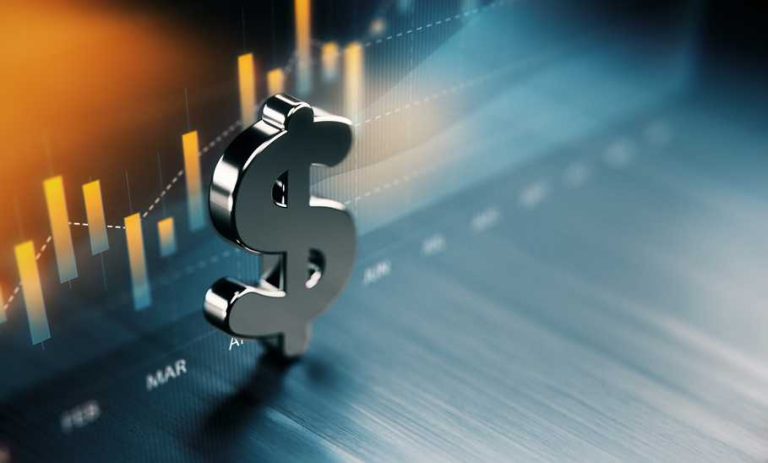This is why dividend investing can hurt!
By G.R. Krahmer | Fire Consultancy
One of the biggest challenges for investors is understanding that dividends should not be a
factor when picking profitable stocks.
Personally, I think that investing for dividend income is one of the strategies that is unfairly put
on a pedestal in the world of investing. Since I personally don’t choose stocks at all and only
invest in index funds, I’m probably biased, but I’m going to take a chance anyway.
The thinking goes something like this:
“If you buy enough shares with a (historically) stable and/or growing dividend payout,
you can live off the dividends regardless of market conditions, and then you are FIRE
(Financially Independent).”
The dividends themselves actually make no difference, they are not bad, and they are not
good… Some people like the income from it, while others believe that paying dividends actually
creates value. Snap, that it feels good when cash comes into your account every month,
because it feels like a salary for which you have done nothing.
Unfortunately, a dividend on your net assets makes zero difference. Our brain treats cash
differently than stocks. This means that dividend income feels different from when a share rises,
but in reality dividend investing does not actually have that many advantages, but it does have a
lot of disadvantages if you ask me.
But before I have an angry crowd of dividend investors with torches and Molotov cocktails at my
door… I’m not saying dividends don’t matter. Dividends are a very important part of profits.
I’m just saying that: “choosing shares based on (historical) dividend payments, is not a
good investment strategy.”
Even Warren Buffett, one of the largest investors in the world, had made it clear in his 2012
letter to his shareholders that paying dividends should not be a part of choosing a good
investment. If you are curious about what exactly he wrote, you can read it here(from page 19)
A letter to the Shareholders of Berkshire Hathaway Inc.
(https://www.berkshirehathaway.com/letters/2012ltr.pdf)
Dividends are a guaranteed source of income.
This is not true. Suppose you have a company with shares that cost €100 each. The company
pays out €10 dividend per share. This €10 per share goes to the shareholders, and when this
happens, the value of the share decreases in value exactly by the amount of dividend that has
been paid out. If you are the investor who owns this stock, then you have exactly 0.0%. You
started with €100 euro share, and now you have €90 euro share and €10 euro cash. So nothing,
and we haven’t even talked about taxes yet.
Dividend investing provides poor diversification.
Limiting yourself to companies that pay dividends means that a very large portion of the stocks
you can invest in remain out of harm’s way. It turns out that approximately 50% of companies
worldwide no pay dividends. If you know that paying dividends is not a good way to find a
profitable investment, and you are familiar with the importance of diversification to get good
market returns, it seems like excluding half the stock market just for the sake of it the fact that
they do not pay dividends is harmful to your expected return.
Choosing dividend stocks gives a small chance of successful investing.
This applies to all shares, whether they pay dividends or not. Most stocks don’t beat the market
over time. Over the past 30 years, about ⅔ of stocks have underperformed the market. So if you
choose a random stock, there is a very good chance that it will underperform the market in the
long term. It’s just stock picking.
Dividends are evidence of a strong, stable company.
Companies can use money to invest in development, research and other projects. If they do not
believe they can make these investments profitable, they will often return some capital to
shareholders. Paying dividends is also just one of the ways in which money can flow back to
shareholders. They can also buy back the shares from the shareholders. This is known as a
‘share repurchase’. Why should companies that pay dividends be better than companies that
invest in development or other profitable projects?
Dividends protect you against blows in the market.
This one can really hurt if you’re not ready for it. Dividend investors believe that collecting
dividends protects them in a bad market while stock prices are low. As you just read, the
amount of dividend comes directly from the value of the share. There is simply no difference
between selling some of your shares or receiving dividends in the form of cash. (Apart from the
broker’s costs) In addition, in 2009, more than half of global companies either cut the dividend or
canceled the dividend.
Companies with dividend growth are said to beat the market.
This is simply not true. The only way a company can beat the market is if it exceeds market
expectations. At any given time, the market ensures that the price of a stock is based on: the
current information + the expectations for the future – the discount for the risk that the company
runs. This is known as the efficient market hypothesis. If a stock wants to beat the market, it
must rise above all expectations. If a stock does exactly what is expected, you can expect it to
return approximately the market. This is the truth whether a company pays a dividend or not.
So dividend investing for financial independence is completely worthless?
No, investing until you can live off your portfolio is still a great goal if you ask me. Keep in mind
that you don’t need dividends to make money from your portfolio, and picking stocks based on
historical dividends doesn’t seem to be a solid way to invest.
It may be better for you from a tax perspective if you pay out part through dividends, but I would
only do this if you are FIRE. At the moment I am in a construction phase to achieve financial
independence, it makes more sense to have that money automatically reinvested. Always
“withdrawing” in between does not help, whether it is from selling shares or receiving dividends.
Of course, there are examples of people who have become financially free by investing in
dividends. In my opinion, this has more to do with luck in disciplined investing than anything
else. If you are someone who enjoys buying stocks this way, be my guest.
As I mentioned earlier, I am probably biased and may be overlooking certain aspects, but until I
am persuaded I will continue to invest in index funds.
If you have any comments or additions, please let us know below.
The tax aspect is not mentioned in this article. It may be better for you from a tax perspective if you
pay out part through dividends, but I would only do this if you are FIRE.
During the time that you are building up your wealth, it is good to let your money work for you for as
long as possible, and it always works to “withdraw money” in between, whether it is from selling
shares or receiving dividends. It is not included.
Newsletter F.I.R.E.
Subscribe
Get the latest news from Road 2 F.I.R.E.
Trending
- Forever Ad-Free and a Budget-Savvy Mindset
- WoolSocks Review: Save Great Money on Groceries, Cashback, and More!
- Dyme Review: Can This App Really Help You Save Money?
- Building Wealth with Index Funds and ETFs
- Top ETFs for Passive Investment Strategies
- Benefits of Low-Cost Index Fund Investing
- Difference Between Fund and Loan
- Guide to Financial Planning Softwares in 2024

